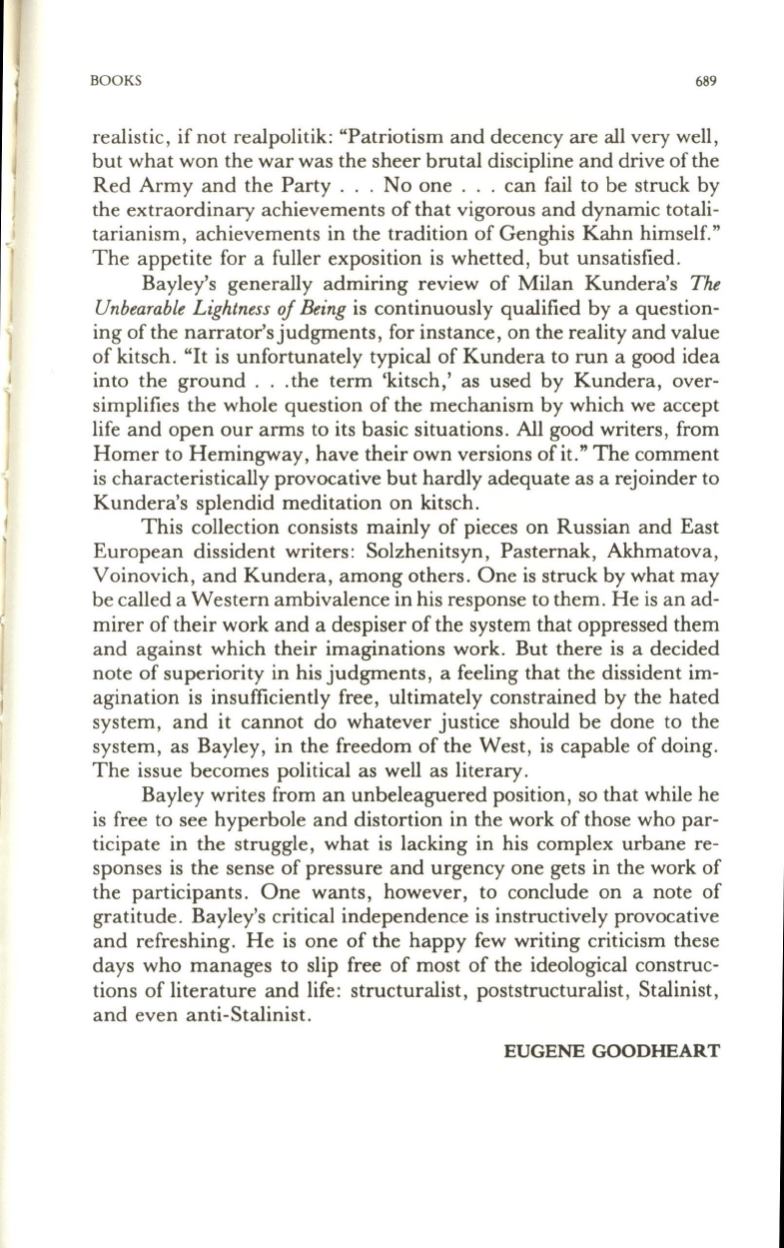
BOOKS
689
realistic, if not realpolitik: "Patriotism and decency are all very well,
but what won the war was the sheer brutal discipline and drive of the
Red Army and the Party . . . No one . . . can fail to be struck by
the extraordinary achievements of that vigorous and dynamic totali–
tarianism, achievements in the tradition of Genghis Kahn himself."
The appetite for a fuller exposition is whetted, but unsatisfied.
Bayley's generally admiring review of Milan Kundera's
The
Unbearable Lightness
of
Being
is continuously qualified by a question–
ing of the narrator's judgments, for instance, on the reality and value
of kitsch . "It is unfortunately typical of Kundera to run a good idea
into the ground ... the term 'kitsch,' as used by Kundera, over–
simplifies the whole question of the mechanism by which we accept
life and open our arms to its basic situations. All good writers, from
Homer to Hemingway, have their own versions of it." The comment
is characteristically provocative but hardly adequate as a rejoinder to
Kundera's splendid meditation on kitsch.
This collection consists mainly of pieces on Russian and East
European dissident writers: Solzhenitsyn, Pasternak, Akhmatova,
Voinovich, and Kundera, among others. One is struck by what may
be called a Western ambivalence in his response to them. He is an ad–
mirer of their work and a despiser of the system that oppressed them
and against which their imaginations work. But there is a decided
note of superiority in his judgments, a feeling that the dissident im–
agination is insufficiently free, ultimately constrained by the hated
system, and it cannot do whatever justice should be done to the
system, as Bayley, in the freedom of the West, is capable of doing.
The issue becomes political as well as literary.
Bayley writes from an unbeleaguered position, so that while he
is free to see hyperbole and distortion in the work of those who par–
ticipate in the struggle, what is lacking in his complex urbane re–
sponses is the sense of pressure and urgency one gets in the work of
the participants. One wants, however, to conclude on a note of
gratitude. Bayley's critical independence is instructively provocative
and refreshing. He is one of the happy few writing criticism these
days who manages to slip free of most of the ideological construc–
tions of literature and life: structuralist, poststructuralist, Stalinist,
and even anti-Stalinist.
EUGENE GOODHEART


